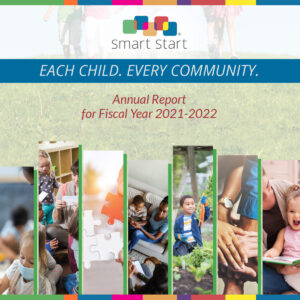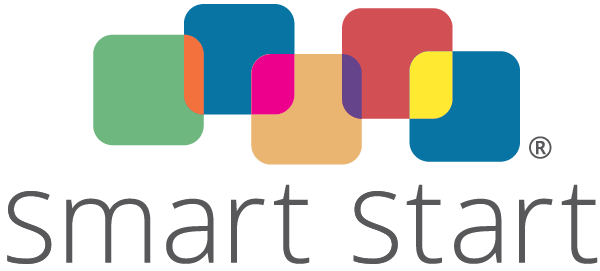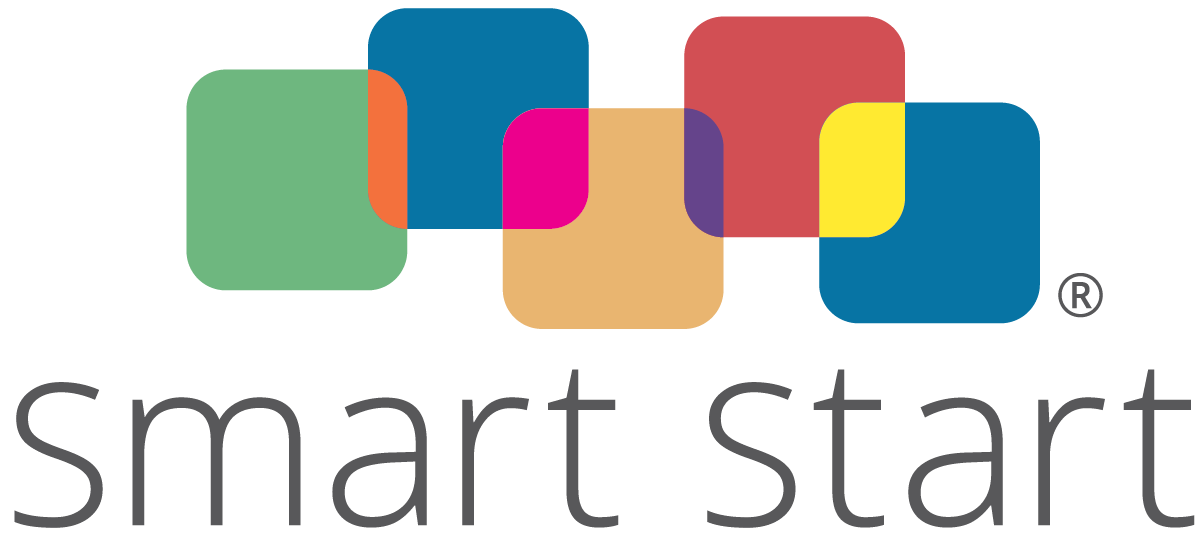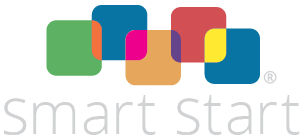Smart Start Supports Early Care and Education for Each Child in Every Community
 The Smart Start Network works year-round to ensure children and families are supported, creating a brighter future for each child in every community. Each Local Partnership provides critical social and emotional support, needed resources and referrals, crucial infrastructure support, and innovative solutions to ensure children have what they need to thrive. To celebrate the new year, Smart Start will showcase the impact of the Network with early care and education, family support, early literacy, health and nutrition, and with early childhood system support and building. To learn more about Smart Start, you can read Smart Start’s 2021-2022 Impact Report.
The Smart Start Network works year-round to ensure children and families are supported, creating a brighter future for each child in every community. Each Local Partnership provides critical social and emotional support, needed resources and referrals, crucial infrastructure support, and innovative solutions to ensure children have what they need to thrive. To celebrate the new year, Smart Start will showcase the impact of the Network with early care and education, family support, early literacy, health and nutrition, and with early childhood system support and building. To learn more about Smart Start, you can read Smart Start’s 2021-2022 Impact Report.
Smart Start is committed to increasing access and raising the quality of early care and education across the state. The Network does so by:
- Improving the high quality of child care centers, by offering professional development, technical assistance, and other supports to raise the quality (and/or licensed) star rating of each center.
- The percentage of children in 4- and 5-star programs increased from 33 percent in 2001 to over 70 percent in 2022.
- In 2021, Local Partnerships supported 607 child care homes and centers serving 18,210 children. In 2022, this number grew to Smart Start supporting 707 child care homes and centers serving 28,270 children.
- Creating a strong foundation for high quality child care in each community by addressing individual community needs.
- Smart Start local partnerships work directly with child care centers in each county to understand the greatest needs for quality enhancements, including environmental ratings, teacher education and skill-building, and health and nutrition.
- Establishing infrastructure support for critical early childhood implementation.
- Across the state, Smart Start Local Partnerships help provide the infrastructure that supports NC Pre-K with Smart Start Local Partnerships administering NC Pre-K in 55 counties and providing an additional $8,265,867 in funding for NC Pre-K classroom support.
- Leading Smart Start’s Coaching for Technical Assistants Initiative that focuses on working with technical assistance providers and child care programs to implement best practices in physical activity, child nutrition, and outdoor play and learning environments.
- This project expands coaching and professional supports for Child Care Health Consultants (CCHC) and technical assistants in the Smart Start Network to provide coaching and consultation to child care providers towards implementation of healthy best practices in the early care and education setting.
- Coaching for Technical Assistants support includes resource creation, the development of a technical assistant resource repository, and the creation of professional development and training opportunities to enhance teacher practice and effectiveness.
- Managing subsidy funds to boost quality and promote child care access for children.
- Many Smart Start local partnerships manage subsidy funds within their communities to boost quality and promote access for children who are at the highest risk.
- Supporting the early care and education workforce through the help of statewide programs and innovative solutions.
- 4,264 low-paid teachers received an education-based salary supplement ensuring continuity of care for children by highly qualified teachers.
- 466 teachers serving 5,406 children participated in Smart Start funded programs that helped them to study early education at the college level.
Local Partnerships Create Impact
 While the entire Smart Start Network supports early care and education, each Local Partnership creates impact in its own way, finding a unique, innovative solution that meets the needs of its children and families.
While the entire Smart Start Network supports early care and education, each Local Partnership creates impact in its own way, finding a unique, innovative solution that meets the needs of its children and families.
For example, in Buncombe County, the Buncombe Partnership for Children is collaborating with other organizations to support NC Pre-K through $3.2 million in funding approved by Buncombe County Commissioners. Through a pilot program, the partnership will address many ongoing issues with funding, staffing, and training in Buncombe County’s NC Pre-Kindergarten program. Proposed solutions include filling a gap between state funding and providers, paying NC Pre-K teachers on par with K-12 public school teachers, increasing teacher assistant salaries, and more. If successful, they could double the number of spots in local NC Pre-K programs by 2030!
You can learn more about the impact Smart Start has had across the state with early care and education by reading Smart Start’s 2021-2022 Annual Report.


